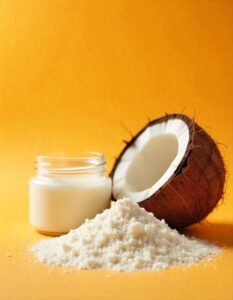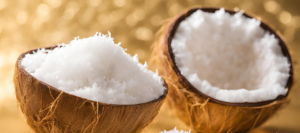Exporting Sunshine: Indian Coconuts and Their Radiant Impact

Introduction
Coconuts are not just delicious tropical fruits; they are also renowned for their countless health benefits and versatile applications. As the second-largest coconut producer worldwide, India has earned a distinguished reputation for exporting high-quality coconuts and coconut byproducts. In this article, we will explore the radiant impact of Indian coconuts and shed light on the benefits and possibilities of importing this versatile fruit.
The Richness of Indian Coconuts
India’s tropical and coastal regions provide the ideal environment for cultivating world-class coconuts. The country’s rich biodiversity, abundant rainfall, and favorable climate contribute to the superior quality of Indian coconuts. Additionally, Indian farmers have honed their skills over generations, harvesting coconuts at optimal maturity to maximize both taste and nutritional value.
Health Benefits of Coconuts
Coconuts are often referred to as “the tree of life” due to their numerous health benefits. Let’s take a closer look at some of the advantages:
- Nutrient-rich: Coconuts contain essential vitamins, minerals, and healthy fats. They are a great source of dietary fiber, vitamin C, potassium, and magnesium, which nourish our bodies and boost immunity.
- Heart-healthy: The saturated fats found in coconuts are predominantly medium-chain fatty acids, such as lauric acid. These fats raise the levels of good cholesterol (HDL) and can contribute to a healthier heart.
- Boosts metabolism: Consuming coconut products can speed up metabolism, leading to increased energy expenditure and potential weight loss benefits.
- Hydrating: The refreshing water inside a coconut is a natural isotonic beverage, containing electrolytes and essential minerals. It rehydrates swiftly and effectively, making it an excellent alternative to sugary sports drinks.
Versatility of Coconut Byproducts
Indian coconuts offer not only their delicious flesh and refreshing water but also a myriad of valuable byproducts that have captivated the global market. These byproducts include:
- Coconut Oil: Extracted from mature coconuts, coconut oil is renowned for its culinary uses, as well as for its skin and hair nourishing properties. It is widely utilized in the cosmetic and pharmaceutical industries.
- Coconut Milk and Cream: Coconut milk and cream provide a rich and creamy base for various dishes, desserts, and beverages. They are dairy-free alternatives enjoyed worldwide by individuals with lactose intolerance or those following vegan diets.
- Coconut Flour: Gluten-free and low in carbohydrates, coconut flour has gained popularity as a healthy alternative to wheat flour in baking and cooking. It adds a delightful coconut aroma and texture to dishes.
- Coconut Sugar: Made from the sap of coconut flowers, coconut sugar is a natural sweetener that has a lower glycemic index than regular sugar. It is often used as a healthier substitute in various recipes.
- Coir and Coconut Fiber: Coir, derived from coconut husks, has gained attention as an eco-friendly alternative to traditional materials. It is widely used in the horticultural industry for soil erosion control, as a substrate for hydroponic plants, and as a raw material for manufacturing ropes, mats, and brushes.
Indian Coconut Exports: A Lucrative Opportunity
India’s booming coconut industry presents a lucrative opportunity for international buyers and traders. Indian exporters strive to maintain high standards and cater to the diverse demands of global markets. Here are some key reasons to consider sourcing coconuts and coconut byproducts from India:
- Unmatched quality: Indian coconuts are renowned for their taste, freshness, and nutritional value. Exporters ensure stringent quality control measures at various stages of production, ensuring that only the finest coconuts reach international markets.
- Competitive pricing: India offers competitive pricing, making it an attractive source for importing coconuts. With low production costs and a robust domestic supply chain, Indian exporters can provide excellent value for money.
- Reliable supply: India’s strong coconut cultivation network ensures a consistent supply throughout the year. With meticulous planning and efficient logistics, exporters can meet large-scale demands promptly and reliably.
- Customizable packaging: Indian exporters understand the importance of appealing packaging to attract customers. They offer customizable packaging options to suit individual preferences and branding requirements.
- Sustainable practices: Indian coconut cultivators prioritize sustainable farming practices, minimizing the use of chemical fertilizers and pesticides. By sourcing coconuts from India, you can contribute to a more environmentally friendly and sustainable supply chain.
“Indian coconuts provide a taste of tropical paradise and bring the sunshine of health and well-being to your doorstep.”
Conclusion
With its vibrant coconut industry, India shines as a notable exporter of coconuts and coconut byproducts. The country’s commitment to quality, diverse product range, and competitive pricing make it an excellent choice for businesses worldwide. By importing Indian coconuts, you not only gain access to a wealth of health benefits and versatile byproducts but also support sustainable farming practices. So, why wait? Embrace the radiant impact of Indian coconuts and bask in the sunshine they bring to your business and customers!
Sources:
– Healthline – Coconuts: Nutrition, Benefits, and Downsides
– The Indian Express – From fibre to fertilizers, the coconut tree makes everything count
– Coconut Development Board, Government of India
Note: The images used in this article are for illustrative purposes only and do not represent the actual products mentioned.



